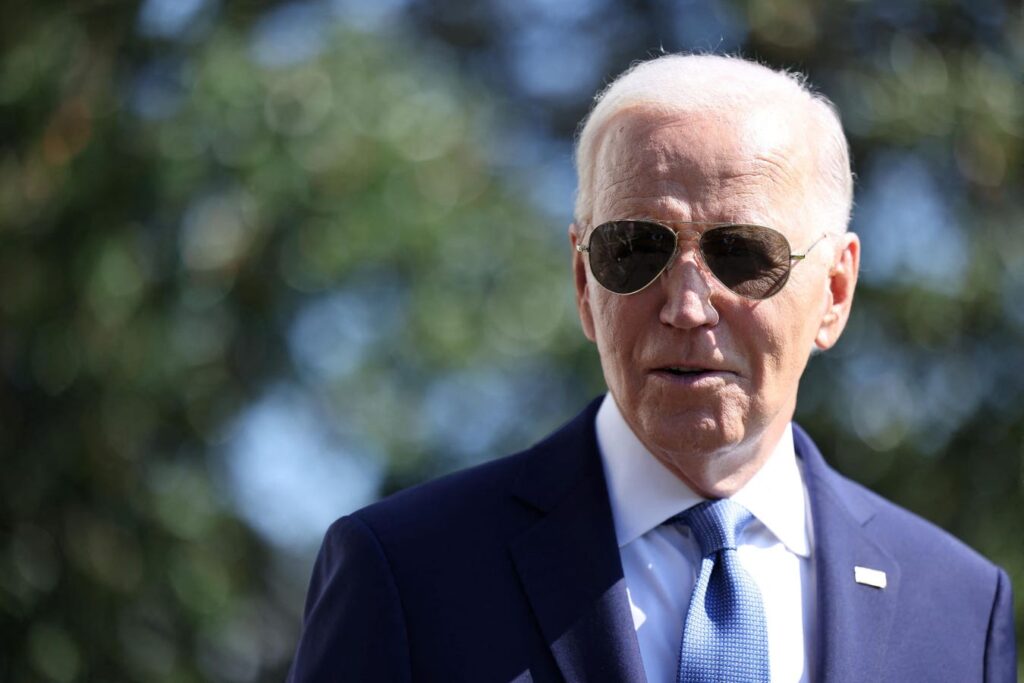President Joe Biden is poised to roll out an expansion of student loan forgiveness, particularly aimed at public service workers, as he prepares for an official visit to Germany next week. This announcement comes during a tumultuous period for student loan borrowers, following the conclusion of two significant relief initiatives amid ongoing legal challenges to new forgiveness plans. The anticipated announcement has been hinted at by White House officials and is expected to specifically focus on the Public Service Loan Forgiveness (PSLF) program, which is designed to provide debt relief to borrowers committed to long-term employment in qualified nonprofit or government roles.
The PSLF program, introduced through bipartisan legislation in 2007, allows borrowers to have their remaining federal student loan balance forgiven after making ten years’ worth of qualifying payments while working in an eligible position. As of recently, the program has been criticized for its low approval rates, with the Department of Education reporting a staggering 98% rejection rate prior to 2020. However, various efforts by the Biden administration to reform PSLF have led to an uptick in successful approvals, with almost one million borrowers now receiving relief over the past three years.
In a move to further enhance accessibility to the PSLF program, the Biden administration has previously signaled its intention to include early childhood educators (ECE) in the expansion of eligibility requirements. Many ECE professionals, who often work in low-paid positions and may operate within private entities, have been historically excluded from the program. An expansion could potentially affect around 500,000 ECE workers across the nation, thereby addressing the inequities present in the current PSLF framework and recognizing the crucial role of these educators, who are predominantly women.
However, the upcoming announcement arrives at a time when several other student loan forgiveness programs spearheaded by the Biden administration face legal challenges. For instance, a federal appellate court recently placed a nationwide injunction on the new Saving on A Valuable Education (SAVE) plan, an income-driven repayment initiative designed to offer affordable payment options and lend pathways to eventually qualify for loan forgiveness. This legal setback has created considerable uncertainty regarding the broader income-driven repayment framework and its potential impact on borrowers seeking relief.
In addition to the complications surrounding the SAVE plan, the Biden administration’s attempts to initiate another mass student debt cancellation program have also been stymied by the courts. This plan was conceived to provide relief after a prior Supreme Court ruling nullified an earlier debt forgiveness initiative. Just as the administration celebrated a temporary victory in Georgia, another court in Missouri quickly issued its own nationwide injunction, thereby halting any plans for comprehensive relief. Republican-led states initiated these legal challenges, asserting that the administration is overstepping its authority, while Biden officials argue that their actions adhere to provisions established under the Higher Education Act.
With the legal maelstrom significantly complicating the landscape of student debt relief, President Biden’s forthcoming announcement on PSLF expansion represents a critical effort to alleviate the burden on public service employees. It is a clear recognition of the contributions made by workers in essential sectors and an attempt to address systemic inequities in access to student loan forgiveness. The situation reflects broader tensions in U.S. education policy, where legal and political obstacles continuously shape the administration’s approach to tackling student debt and providing necessary support for borrowers, especially those serving the public good.

